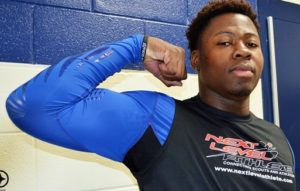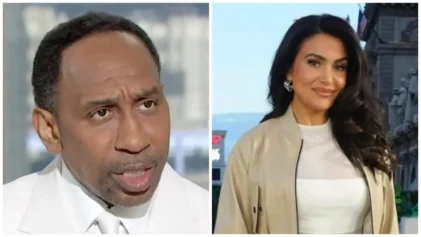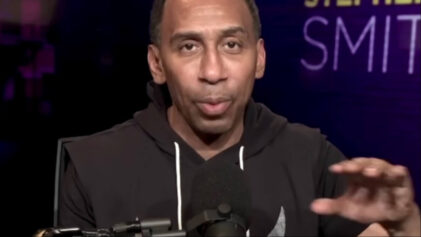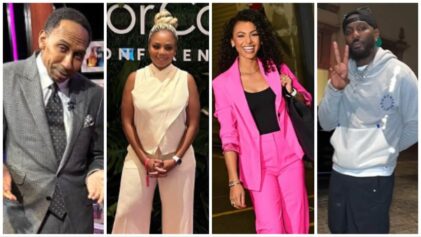The uniqueness of sports is not the competition. That’s the attraction of sports. The uniqueness of it is that a Black fan and a white fan of the same team can sit side-by-side at a stadium or stand together at a sports bar and give their heritage little consideration. They will debate the action, high-five each other to celebrate, bemoan a transgression and generally exist in harmony.
Then the game ends and it’s right back to the divide that this week has captured the attention of the nation, in different ways.
Let’s start in Oklahoma, where a top recruit, who is Black, has withdrawn his commitment to play for the Sooners after watching the repulsive fraternity video in which white young men who should represent progress on campus chanted hateful things about Black people.
Jean Delance of Mesquite, Texas, said his decision had “nothing to do with the coaching staff” and everything to do with what he saw in the Sigma Alpha Epsilon fraternity video.
Hate to break it to Delance, but unless he goes to an historically Black college, he’s bound to experience what happened in Norman, Oklahoma, on any—any—of the majority campuses in the country. If Delance goes to Texas or Alabama, which he tweeted has already pounced and offered him a scholarship, the chances of something similar happening are not small. As a matter of fact, something did happen at Alabama—less than two years ago, an Alabama sorority, Pi Beta Phi, was accused of blocking two Black girls from pledging because of their race. So, clearly, abandoning Oklahoma is not abandoning the problem.
That’s the culture at majority schools, even those considered to be “liberal.” Black athletes generally are shielded from the madness, treated as “special” and looked at most times as “different” from their African-American classmates.
They live in their own world on campus, so to speak, but even that is a precarious one wrought with the specter that their race can put their status in peril on the whim of an audacious, drunk white guy or a cunning woman or jaded campus police.
There are no solutions that will bear discernible change in the immediate future. For sure, that frat at OU is not alone in its feelings about Black people. In fact, there are thousands of white students not in Greek organizations that share those twisted sentiments—and it’s the same from campus-to-campus across America.
Maybe this exposure will temper the blatant animus. . . for a while. You know how that goes. Everyone takes stock after a crisis and vows to do better. And the change lasts about a week. Or two. Then it’s back to bad business as usual.
In the business of the NFL, where our second race-related story originates, you cannot win without Black players. That’s the nature of the game. So, it strikes as odd that there has been somewhat of an uproar about ESPN’s Steven A. Smith’s statements on-air that questioned why Philadelphia Eagles coach Chip Kelly got rid of at least three Black skilled players in two years, as if he’s not replacing them with other Black players.
It seems more dumb than racist that Kelly would have no use for DeSean Jackson, Jeremy Maclin and LeSean McCoy—three talented players who have been traded or let go since Kelly arrived. (Kelly reportedly wanted Maclin back, but he took more money to join former Eagles coach Andy Reid in Kansas City.)
Smith said that the word on the street in Philly is that race was broached as a potential reason behind Kelly’s moves.
Who could possibly quantify that? How? This much is certain. Kelly wanted Frank Gore and Byron Maxwell to sign with the Eagles. They’re Black. Kelly cut James Casey and Todd Herremans. They’re white.
Plus, the pulse of Philadelphia will almost always tilt toward the unseemly. It’s the congenial way of the City of Brotherly Love. This isn’t to say what Stephen A. has heard is not true. It’s likely 100 percent true.
But what it truly brings into play is the lack of Black people in power positions with NFL organizations. Think about this: Kelly came from college, Oregon, and was granted general manager authority, too—with no experience.
Out of seven openings for head-coaching jobs this offseason, one Black coach—Todd Bowles to the New York Jets—was hired. That’s it. And that’s problematic and speaks to the lack of African-Americans in decision-making positions in the NFL. Mostly white men decide the fate of mostly Black players.
It would be a lot easier for everyone if sports were just about the game, the rooting for players and teams. At least then the racial divide could be masked by the spirit of the competition and color-blind support. Too bad, indeed.



